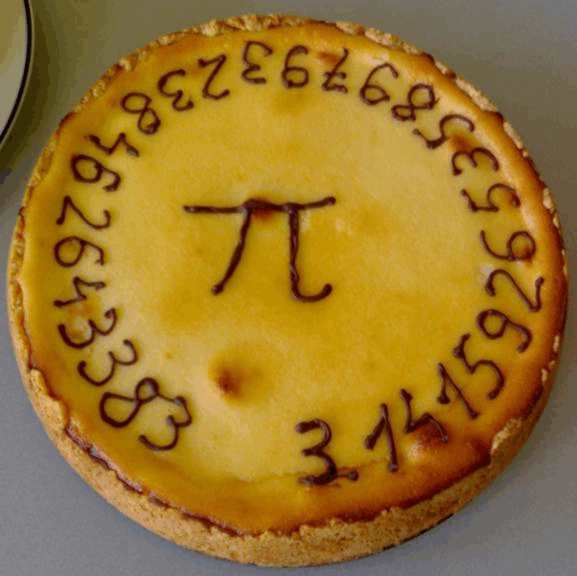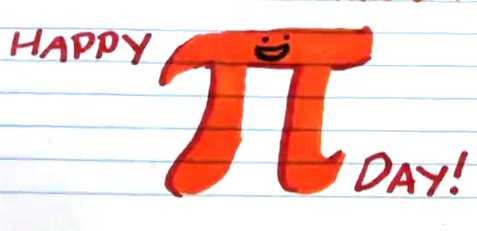| Celebrate Pi Day It Contains All Human Knowledge |
| Written by Mike James |
| Wednesday, 14 March 2012 |
|
Assuming you are reading this on the 14th of March then the good news is that it is Pi Day. Of course, the date has been chosen because it is 3/14 i.e. 3rd month, 14th day, and these are the first three digits of Pi, 3.14. First, I should say that it makes less sense to have this day as Pi day in countries where dates are written 14/3, i.e. day then month, but as there is no such date as 3rd day, 14th month there really isn't another choice.
Pi Pie, created at Delft University of Technology, applied physics, seismics and acoustics
So Pi is 3.14 etc and the real joy of Pi is all contained in the etc. Pi is a transcendental irrational number and it is a great shame that we use the term "transcendental" at all, because it doesn't mean what so many seem to think it means. In this case it simply means that there is no finite polynomial equation that Pi satisfies - which means there is no simple formula for Pi. Any formula has to be in terms of an infinite series. Thus Pi is a number that has a decimal expansion that never terminates and never repeats - because if it did it wouldn't be irrational or transcendental. Any decimal expansion that repeats - like 0.33333333333 - is a rational number, i.e. can be expressed as the ratio of two integers i.e. 1/3 in this case. What all this means is that Pi is a strange sort of number. It has enough regularity to be computable - i.e. there are lots of formulas that can be used to calculate it to any particular digit - but is is also irregular enough to be beyond the range of a simple polynomial. It is this irregularity that is so interesting. The digits of Pi cannot be random - we compute them rather than throw a dice for them - but they are pseudo random. It is generally said that if you enumerate Pi for long enough then you will eventually find every number you care to specify and if you use a numeric code you will eventually find the any text you specify. So Pi contains the complete works of Shakespeare, or any other text you care to mention; the complete theory of QFT; and the theory of life the universe and everything. However, this hasn't been proved. Any number that contains any sequence if you look for long enough is called normal and we have never proved that Pi is normal. Vi Hart is well known for her math videos and to celebrate Pi day we have a musing on finding Shakespeare in Pi and on the problem of proving Pi normal. If you listen you will discover that it is in rhyme.
Simply brilliant!
More Informationhttp://en.wikipedia.org/wiki/Pi_day Further Reading60 trillionth binary digit of pi-squared calculated Yahoo! Gets to the 2 Quadrillionth bit of Pi - it's zero
Comments
or email your comment to: comments@i-programmer.info
To be informed about new articles on I Programmer, subscribe to the RSS feed, follow us on Google+, Twitter, Linkedin or Facebook or sign up for our weekly newsletter.
|
| Last Updated ( Sunday, 14 March 2021 ) |



